Watermelon is a refreshing and hydrating summer fruit that is enjoyed by many. While it is known for its high water content and delicious taste, some people may wonder if it is a good source of fiber.
Fiber is an essential nutrient that helps promote digestion and overall health, so it’s worth exploring whether watermelon contains this important component.
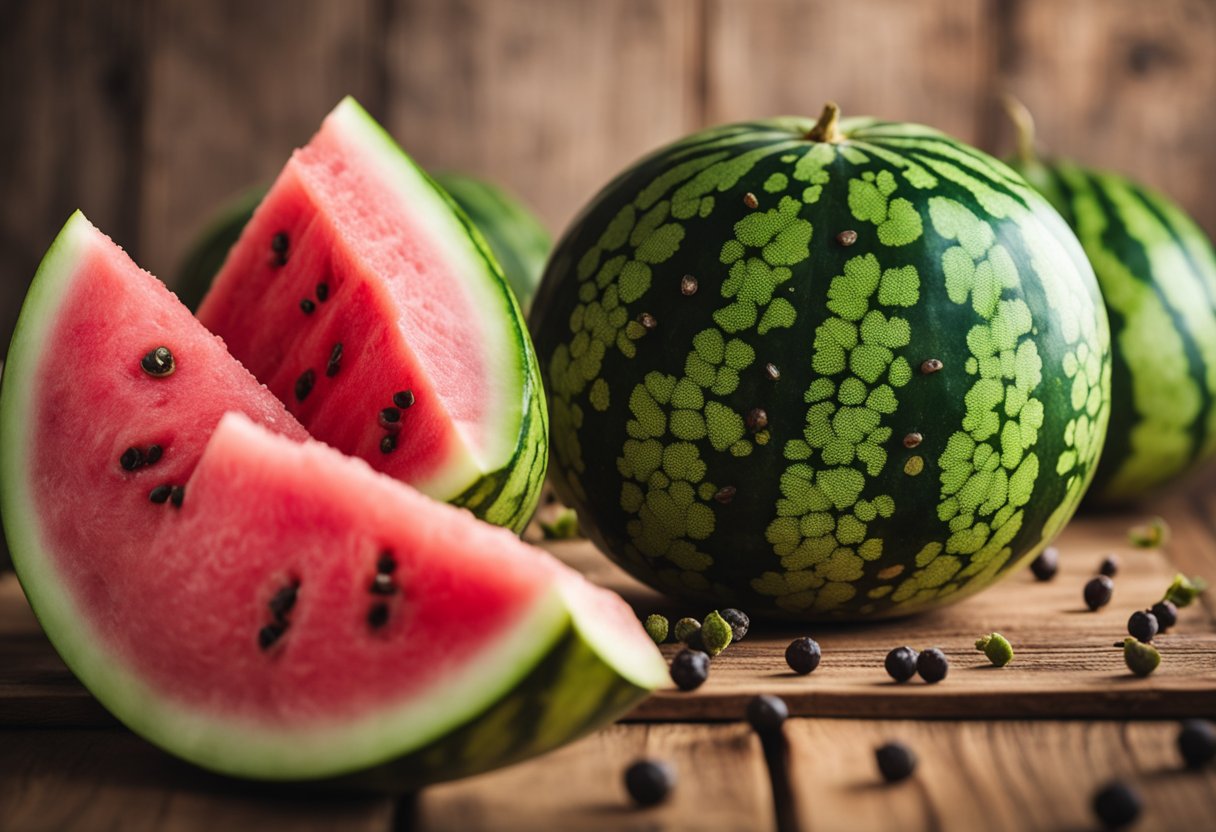
Watermelon: An Overview Watermelon is a juicy and sweet fruit that is part of the Cucurbitaceae family, which also includes cucumbers, pumpkins, and squash.
It is believed to have originated in Africa and is now grown in many parts of the world, including the United States, China, and Brazil.
Watermelon is typically eaten raw and is a popular addition to fruit salads, smoothies, and desserts.
Nutritional Content of Watermelon Watermelon is a low-calorie fruit that is rich in vitamins, minerals, and antioxidants.
According to Healthline, a 2/3 cup (100-gram) serving of watermelon contains the following nutrients:
- Calories: 30
- Fiber: 0.4 grams
- Sugar: 6 grams
- Protein: 0.6 grams
- Fat: 0.2 grams
- Vitamin C: 10% of the Daily Value (DV)
- Vitamin A: 11% of the DV
- Potassium: 5% of the DV
- Magnesium: 3% of the DV
Health Benefits of Watermelon While watermelon is not a significant source of fiber, it does offer a range of health benefits.
For example, it is high in lycopene, a powerful antioxidant that may help protect against cancer and heart disease.
Additionally, watermelon is rich in citrulline, an amino acid that may help improve blood flow and reduce muscle soreness after exercise.
Key Takeaways
- Watermelon is a low-calorie fruit that is not a significant source of fiber.
- Despite its lack of fiber, watermelon is rich in vitamins, minerals, and antioxidants that offer many health benefits.
- Eating watermelon may help improve blood flow, reduce muscle soreness, and protect against cancer and heart disease.
Watermelon: An Overview
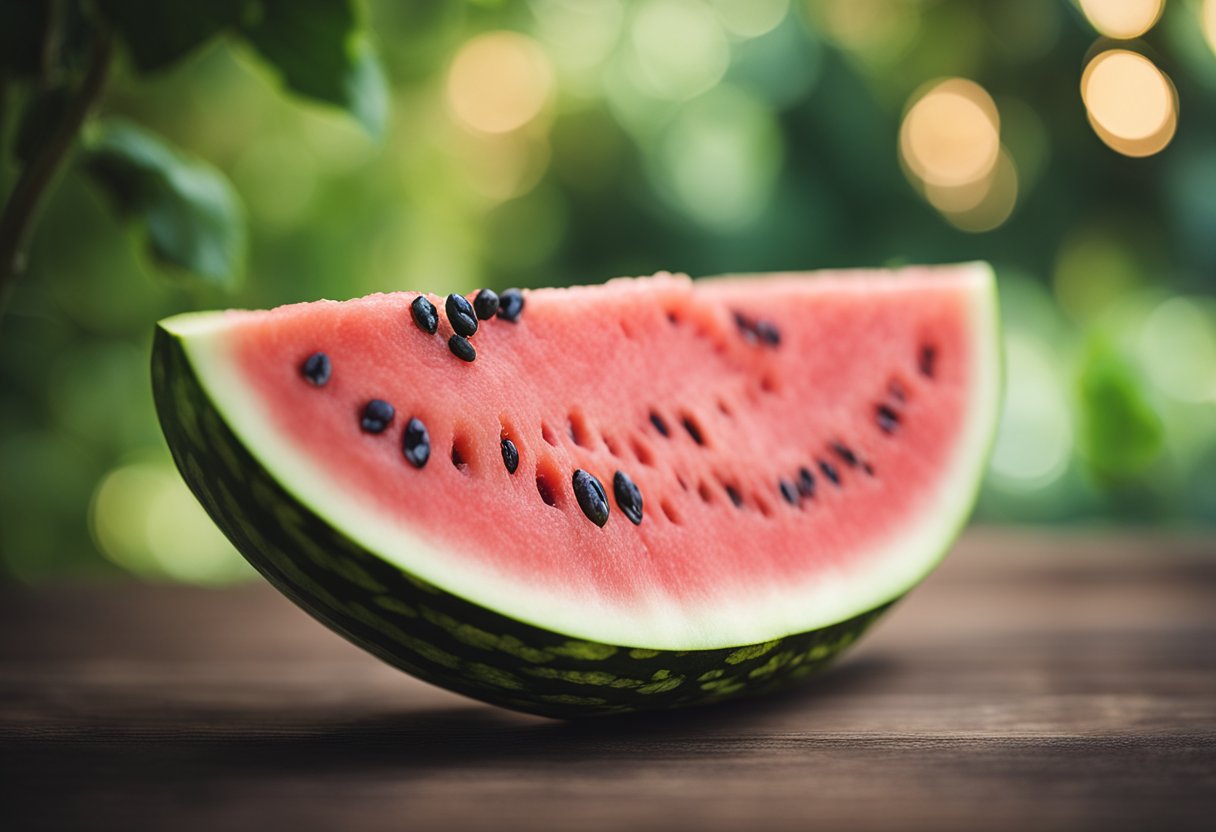
Watermelon is a delicious and refreshing fruit that is perfect for summer. It is a member of the Citrullus lanatus species, which also includes other types of melons.
Watermelon is known for its high water content, which makes it an excellent choice for staying hydrated during hot weather.
One question that often comes up about watermelon is whether it contains fiber.
The answer is yes, but the amount of fiber in watermelon is relatively low compared to other fruits and vegetables. According to Healthline, one cup of watermelon contains 0.6 grams of fiber.
However, watermelon does provide other important nutrients. It is a good source of vitamin C, which is essential for a healthy immune system.
It also contains potassium, which helps regulate blood pressure, and lycopene, which is a powerful antioxidant that may help protect against certain types of cancer.
When it comes to eating watermelon, there are many ways to enjoy it. Some people prefer to eat it plain, while others like to add it to salads or smoothies.
Watermelon can also be grilled or used to make popsicles or sorbet.
Overall, watermelon is a tasty and nutritious fruit that is perfect for staying cool and hydrated during the summer months.
While it may not be the highest source of fiber, it does provide other important nutrients that make it a healthy addition to any diet.
Nutritional Content of Watermelon
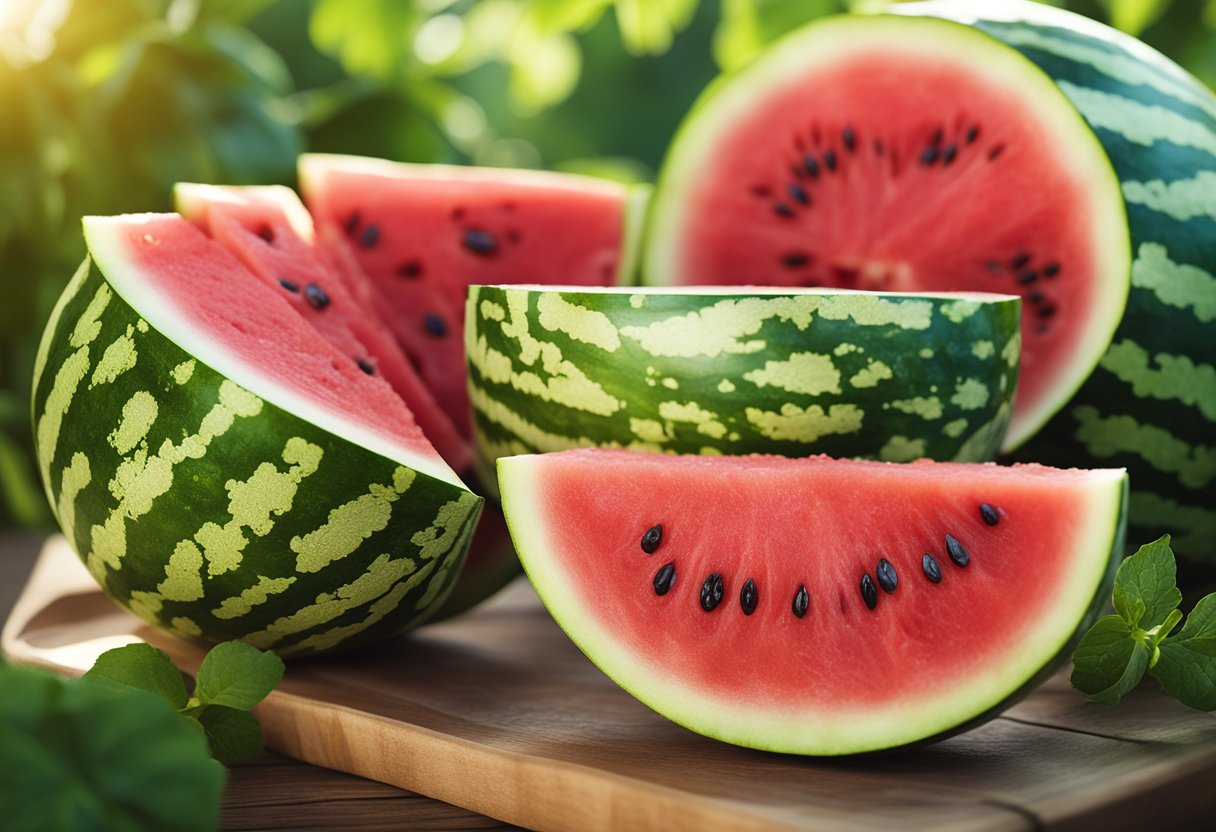
Watermelon is a refreshing fruit that is mostly made up of water, but it also contains some essential nutrients.
One cup (152 grams) of diced watermelon contains approximately 46 calories, making it a low-calorie fruit that can be included in a healthy diet.
Watermelon is not a significant source of protein, with only 0.9 grams per cup. However, it is a good source of carbohydrates, with 12 grams per cup.
The carbs in watermelon are mostly simple sugars such as glucose, fructose, and sucrose.
Watermelon is also low in fat, with only 0.2 grams per cup. It is a good source of fiber, with 0.6 grams per cup. Fiber is essential for maintaining healthy digestion and preventing constipation.
Watermelon is a good source of vitamins A and C. One cup of watermelon contains 5% of the daily value (DV) of vitamin A and 14% of the DV of vitamin C.
Vitamin A is essential for healthy vision, while vitamin C is an antioxidant that helps protect cells from damage.
Watermelon also contains small amounts of vitamin B6, which is important for brain development and function.
Additionally, it is a good source of potassium, with one cup containing 4% of the DV. Potassium is vital for maintaining healthy blood pressure and heart function.
In conclusion, watermelon is a low-calorie fruit that contains essential nutrients such as vitamins A and C, potassium, and fiber.
While it is not a significant source of protein or fat, it is a good source of carbohydrates that can be included in a healthy diet.
Health Benefits of Watermelon
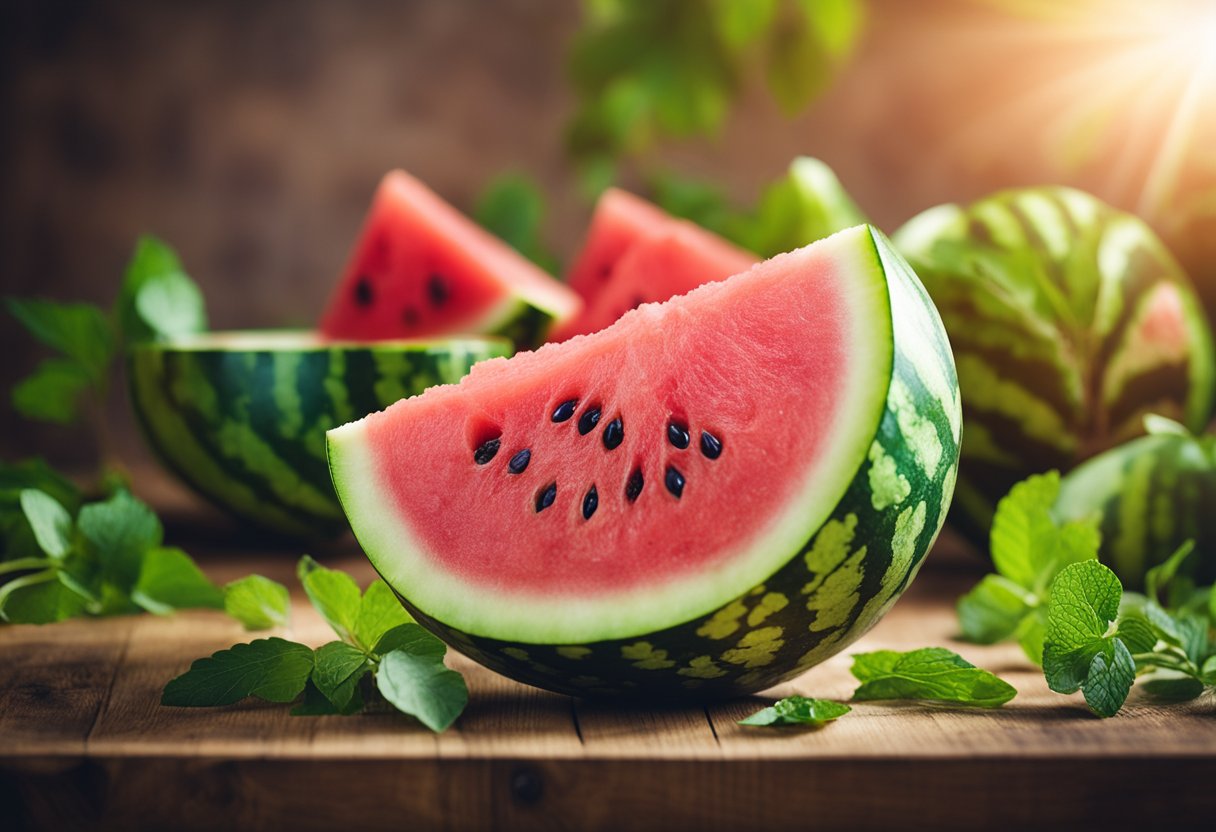
Watermelon is a delicious and refreshing fruit that is packed with numerous health benefits. One of the most notable benefits of watermelon is its high water content, making it an excellent source of hydration.
In fact, watermelon is made up of about 92% water, making it a great choice for staying hydrated throughout the day.
Watermelon is also rich in antioxidants like lycopene, which has been linked to a reduced risk of heart disease and certain types of cancer.
Lycopene is a carotenoid that gives watermelon its red color and is known for its powerful anti-inflammatory properties.
Another key nutrient found in watermelon is citrulline, an amino acid that can help improve blood flow and lower blood pressure.
Citrulline is converted into arginine in the body, which helps to produce nitric oxide, a molecule that helps to relax blood vessels and improve circulation.
Watermelon also contains electrolytes like potassium, which can help regulate fluid balance in the body and support healthy muscle and nerve function.
Additionally, watermelon is a good source of cucurbitacin E, a phytonutrient that has been shown to have anti-inflammatory and anti-cancer properties.
Finally, watermelon is a great source of beta-carotene, a type of carotenoid that is converted into vitamin A in the body.
Vitamin A is essential for maintaining healthy skin, vision, and immune function.
Overall, watermelon is a delicious and nutritious fruit that can provide numerous health benefits.
Whether you enjoy it sliced, blended into a smoothie, or used in a salad, watermelon is a great addition to any healthy diet.
Watermelon and Chronic Diseases
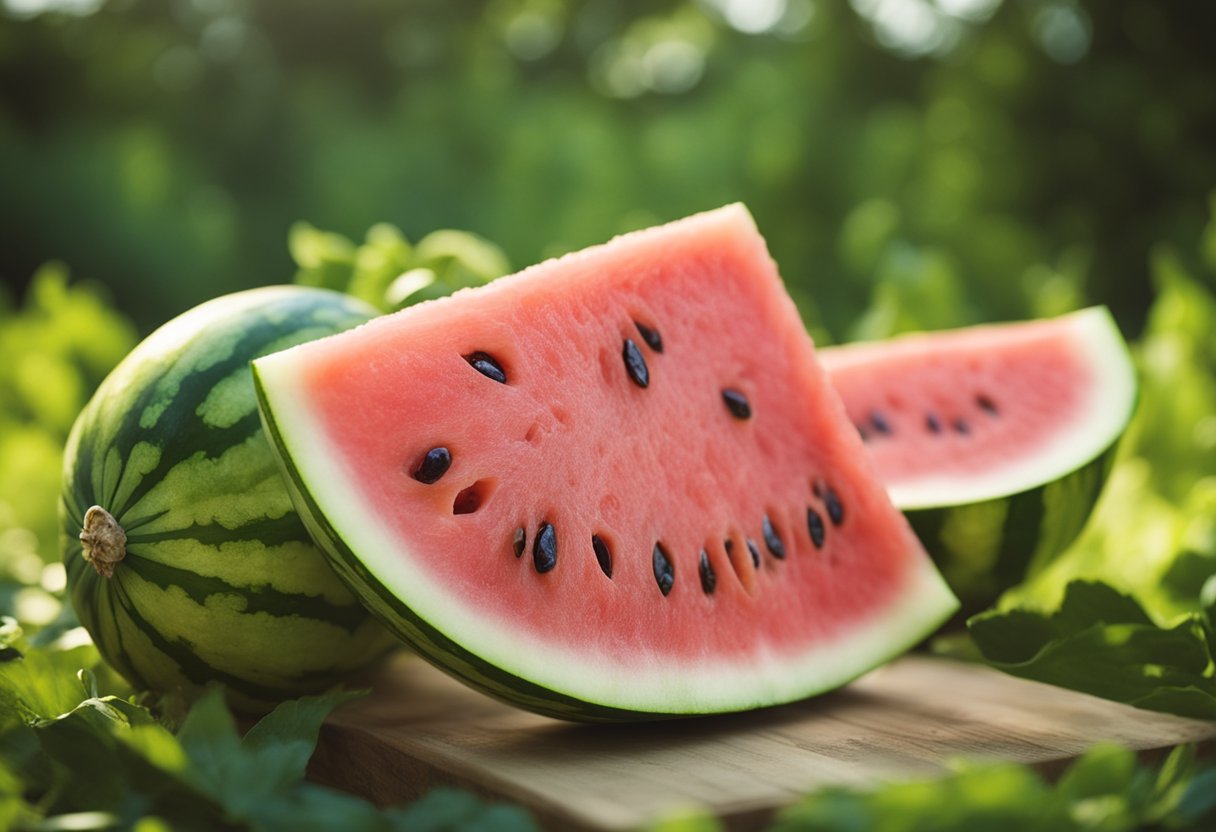
I was curious to know if watermelon has fiber and found out that it does. But did you know that consuming watermelon may also help prevent chronic diseases?
According to the National Cancer Institute, a diet rich in fruits and vegetables may help reduce the risk of cancer. Watermelon, being a good source of fiber, vitamins, and minerals, can be a great addition to your diet.
Heart disease is another chronic disease that can be prevented by a healthy diet. Watermelon is known to have a positive effect on blood pressure and circulation, which can reduce the risk of heart disease and stroke.
Additionally, watermelon seeds are rich in magnesium, which can help lower bad cholesterol levels and prevent heart attacks and strokes.
Hypertension, or high blood pressure, is a common condition that can increase the risk of heart disease and stroke.
Studies have shown that watermelon consumption can help lower blood pressure in adults with hypertension.
Type 2 diabetes is another chronic disease that can be prevented by a healthy diet. Watermelon has a low glycemic index, meaning it doesn’t cause a spike in blood sugar levels.
This makes it a great option for people with diabetes who need to monitor their blood sugar levels.
Alzheimer’s disease and age-related macular degeneration are two chronic diseases that can affect older adults.
Watermelon is a good source of antioxidants, which can help protect against age-related damage to the brain and eyes.
In conclusion, including watermelon in your diet can have numerous health benefits, including reducing the risk of chronic diseases.
It is a great source of fiber, vitamins, and minerals, making it a healthy and delicious addition to any meal.
Watermelon and Digestion
As a nutritionist, I often get asked if watermelon has fiber and how it affects digestion. The answer is yes, watermelon contains fiber, which is important for maintaining regular bowel movements and preventing constipation.
Fiber is a type of carbohydrate that your body cannot digest. Instead, it passes through your digestive system mostly intact, adding bulk to your stool and helping to move waste through your intestines.
Watermelon contains both soluble and insoluble fiber, which are both important for digestive health.
Soluble fiber dissolves in water and forms a gel-like substance in your digestive tract. This type of fiber can help regulate blood sugar levels and lower cholesterol levels.
Insoluble fiber, on the other hand, does not dissolve in water and adds bulk to your stool, making it easier to pass.
In addition to fiber, watermelon also contains a high amount of water, which can help keep you hydrated and aid in digestion.
Staying hydrated is important for maintaining regular bowel movements and preventing constipation.
Overall, watermelon can be a great addition to a healthy diet for promoting good digestion.
It contains both soluble and insoluble fiber, as well as a high amount of water, which can help keep your digestive system running smoothly.
Watermelon and Athletic Performance
As an athlete, it’s essential to fuel your body with the right nutrients to perform at your best.
Watermelon is a refreshing and hydrating fruit that can be a great addition to your diet. But does watermelon have fiber, and can it improve athletic performance?
While watermelon is not a significant source of fiber, providing only 0.4 grams per 2/3 cup (100 grams), it is rich in other nutrients that can benefit athletes.
One of the most notable is citrulline, an amino acid that can improve blood flow and reduce muscle soreness after exercise.
Research on watermelon juice and exercise performance has given mixed results, but some studies have shown that consuming watermelon juice before exercise can improve endurance and reduce fatigue.
This may be due to the high content of potassium, magnesium, calcium, and other electrolytes in watermelon, which can help maintain fluid balance and prevent dehydration during exercise.
In addition to its potential performance benefits, watermelon is also a low-calorie, nutrient-dense food that can support overall health.
It’s rich in vitamins A and C, as well as antioxidants like lycopene, which may help reduce inflammation and protect against chronic diseases.
Overall, while watermelon may not be a significant source of fiber, it can be a beneficial addition to an athlete’s diet.
Its high water content and nutrient profile make it a great option for hydration and overall health, while its potential performance benefits make it worth considering as a pre-workout or post-workout snack.
Watermelon in the Diet
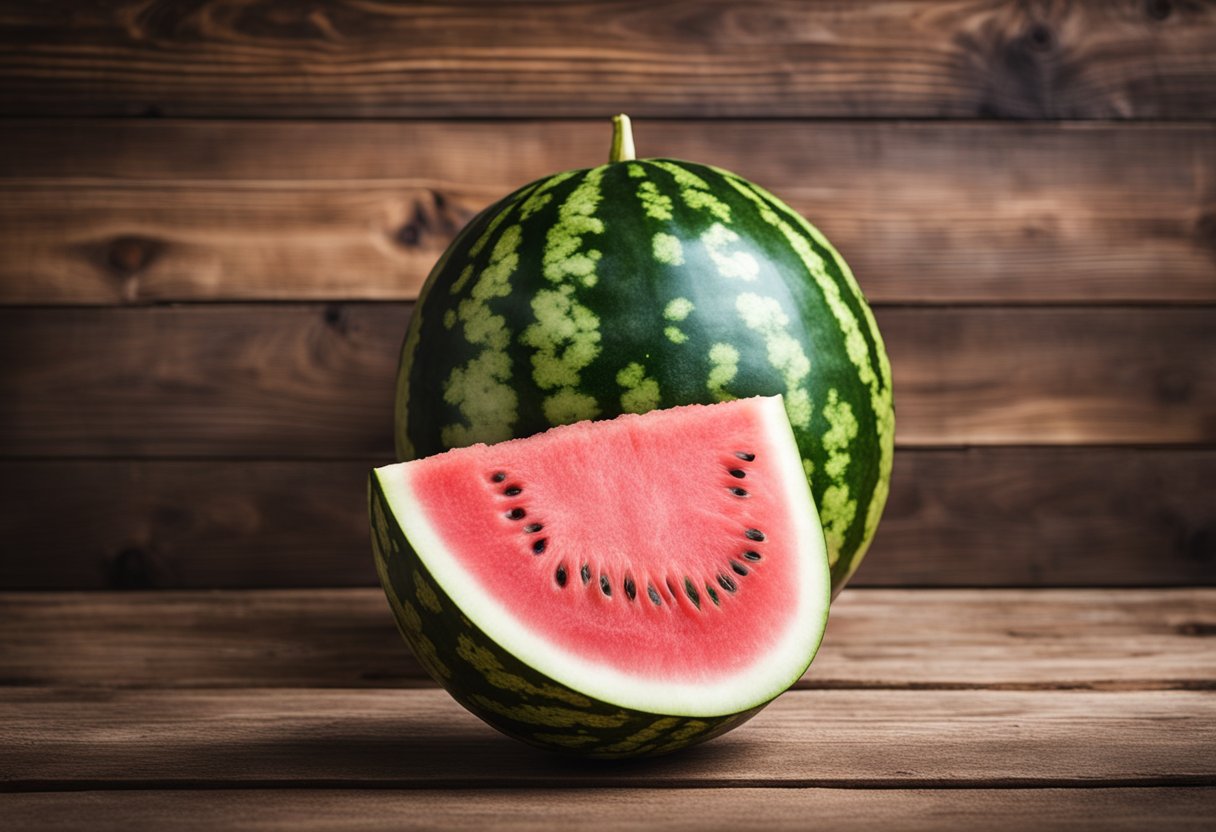
As a nutritionist, I often get asked if watermelon has fiber. The answer is yes! Watermelon is a great source of fiber, which is an essential nutrient that helps maintain a healthy digestive system.
Including watermelon in your diet can be a great way to boost your fiber intake. One cup of watermelon contains about 0.6 grams of fiber, which is about 2% of the daily recommended value for adults.
Watermelon is also a versatile fruit that can be used in a variety of dishes.
You can add it to your favorite salad for a refreshing and healthy twist, or blend it into a smoothie for a quick and easy breakfast or snack.
If you’re looking for a savory option, try adding watermelon to a stir-fry. Its sweetness pairs well with savory flavors and it adds a unique texture to the dish.
Overall, watermelon can be a great addition to a healthy diet. It’s low in calories and high in nutrients, including fiber.
So next time you’re at the grocery store, be sure to grab a watermelon and experiment with different ways to incorporate it into your meals.
Potential Side Effects of Watermelon
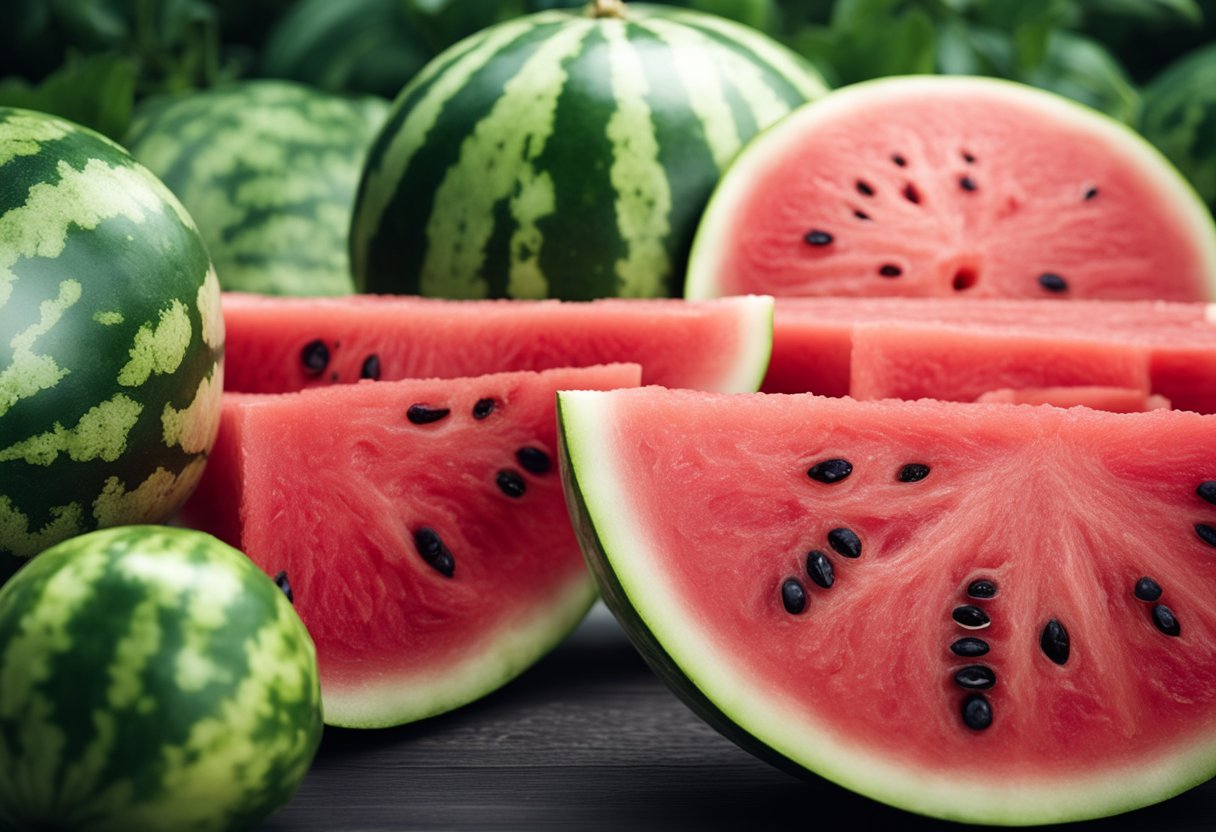
As with any food, it is possible to experience side effects from consuming watermelon. However, these side effects are generally mild and uncommon.
One potential side effect is an allergic reaction. According to Healthline, some people may experience an allergic reaction to watermelon, which can cause symptoms such as hives, itching, and difficulty breathing.
If you experience any of these symptoms after consuming watermelon, seek medical attention immediately.
Another possible side effect of watermelon is bloating. This is because watermelon is high in fructose, which can be difficult for some people to digest.
If you experience bloating after eating watermelon, try eating smaller portions or avoiding it altogether.
In rare cases, consuming large amounts of watermelon may cause diarrhea. This is because watermelon is a natural diuretic and can increase the amount of water in the digestive system.
If you experience diarrhea after eating watermelon, drink plenty of fluids to stay hydrated and avoid consuming large amounts of the fruit.
It is also worth noting that watermelon contains a high amount of natural sugars, which can cause a spike in blood sugar levels.
If you have diabetes or are at risk of developing diabetes, it is important to monitor your watermelon intake and speak with your doctor about incorporating it into your diet.
Finally, some people may experience side effects related to the pollen found in watermelon.
This is because watermelon is related to other plants in the Cucurbitaceae family, such as cucumbers and pumpkins, which can cause cross-reactivity in people with pollen allergies.
If you have a pollen allergy, it may be best to avoid watermelon or speak with your doctor before consuming it.
Overall, watermelon is a safe and healthy fruit to consume in moderation. If you experience any side effects after eating watermelon, speak with your doctor to determine the best course of action.
Watermelon Varieties and Preparation
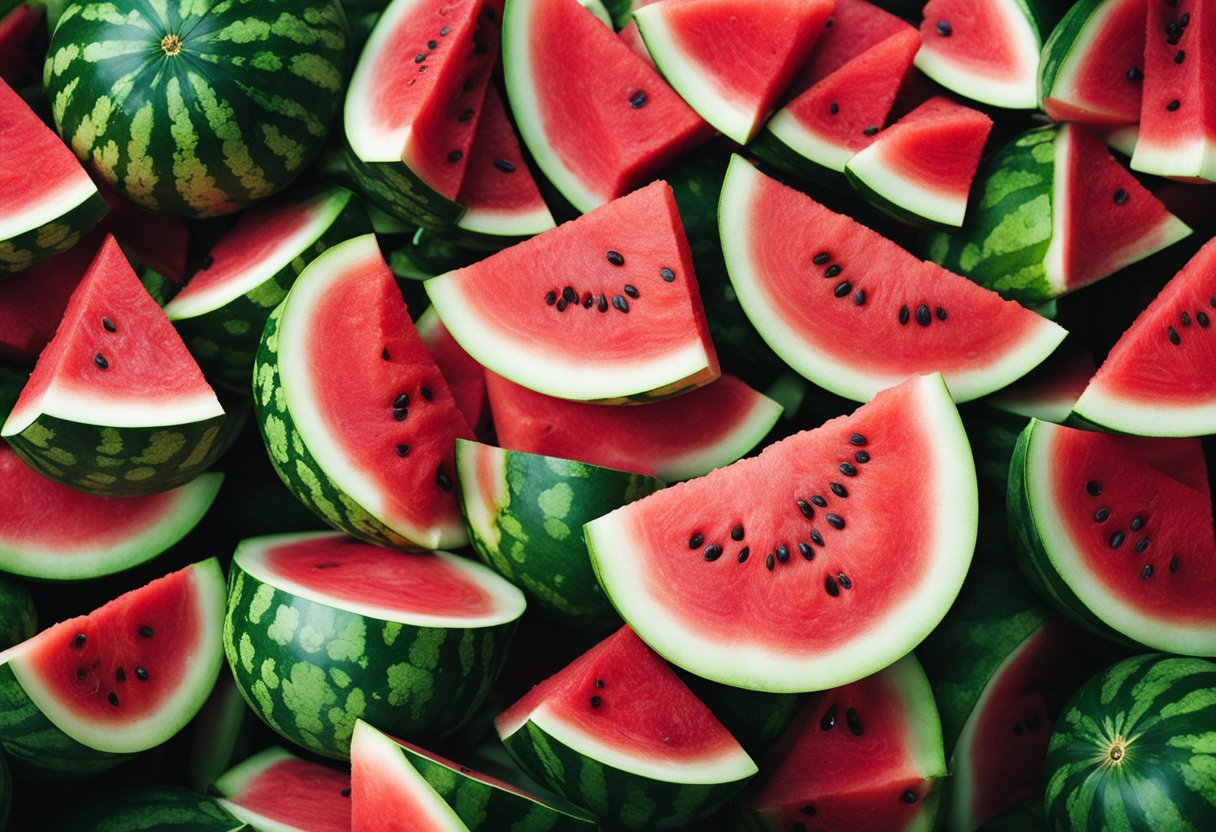
As a registered dietitian, I often get asked about the fiber content of watermelon. While watermelon is not a significant source of fiber, it is still a healthy and refreshing fruit to enjoy during the summer months.
When it comes to watermelon varieties, there are many to choose from. Some popular seedless varieties include the Crimson Sweet and the Sugar Baby.
If you prefer watermelon with seeds, the Black Diamond and the Carolina Cross #183 are great options.
When preparing watermelon, it’s important to note that the rind is edible and can be used in recipes such as pickles or stir-fries. However, most people prefer to discard the rind and only eat the juicy flesh.
One easy way to enjoy watermelon is by blending it into a refreshing smoothie.
Simply remove the rind and seeds, chop the flesh into small pieces, and blend with ice and your favorite liquid such as coconut water or almond milk.
In conclusion, while watermelon may not be a significant source of fiber, it is still a healthy and delicious fruit to enjoy.
With so many varieties to choose from and versatile ways to prepare it, it’s a great addition to any summer meal or snack.
Comparison with Other Fruits
As I mentioned earlier, watermelon is a good source of dietary fiber.
However, it’s important to note that some fruits are higher in fiber than others. Here’s a comparison of watermelon’s fiber content with other popular fruits:
- Apple: One medium-sized apple contains 4.4 grams of fiber [1].
- Blackberries: One cup of blackberries contains 7.6 grams of fiber [1].
- Cantaloupe: One cup of cantaloupe contains 1.5 grams of fiber [1].
- Pumpkin: One cup of cooked pumpkin contains 7 grams of fiber [1].
- Tomatoes: One medium-sized tomato contains 1.5 grams of fiber [1].
- Watermelon: One cup of diced watermelon contains 0.6 grams of fiber [1].
As you can see, watermelon has a lower fiber content compared to other fruits like blackberries and pumpkin. However, it’s still a good source of fiber and can be a healthy addition to your diet.
It’s also worth noting that some vegetables, like cucumber, are also good sources of fiber. One medium-sized cucumber contains 0.5 grams of fiber [1].
So, if you’re looking to increase your fiber intake, be sure to include a variety of fruits and vegetables in your diet.
Frequently Asked Questions
What are the health benefits of eating watermelon?
Watermelon is a great source of hydration as it is 91% water. It is also low in calories and high in vitamins and minerals, such as vitamin C, vitamin A, and potassium.
Eating watermelon may help reduce inflammation, improve heart health, and support healthy skin.
How does watermelon affect digestion?
Watermelon contains fiber, which is important for healthy digestion. Fiber helps to regulate bowel movements, prevent constipation, and promote the growth of healthy gut bacteria.
Additionally, the high water content in watermelon can help to keep the digestive system hydrated and functioning properly.
Is watermelon a good source of fiber?
While watermelon does contain some fiber, it is not considered a high-fiber food. According to Medical Health Authority, watermelon contains approximately 0.6 grams of fiber per 100 grams.
However, it can still be a healthy addition to a balanced diet.
Does watermelon help with bowel movements?
Watermelon contains fiber, which can help regulate bowel movements and prevent constipation. However, it is not a magic solution for bowel irregularity.
A healthy diet that includes a variety of fruits, vegetables, and whole grains is important for maintaining regular bowel movements.
What are the vitamins and minerals in watermelon?
Watermelon is a good source of vitamins and minerals, including vitamin C, vitamin A, potassium, and magnesium.
Vitamin C is important for immune function and skin health, while vitamin A is important for vision and immune function.
Potassium is important for heart health and muscle function, while magnesium is important for bone health and energy production.
What is the recommended serving size for watermelon?
The recommended serving size for watermelon is about 1 to 2 cups, depending on your age and activity level.
According to Cleveland Clinic, one cup of watermelon contains about 46 calories, 1 gram of protein, and 11 grams of carbohydrates.
It is important to remember to balance your watermelon intake with other healthy foods as well.







